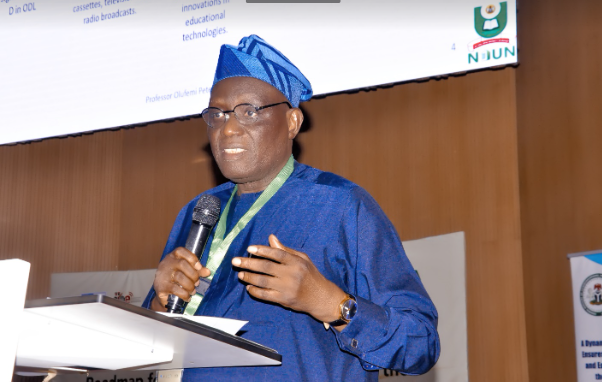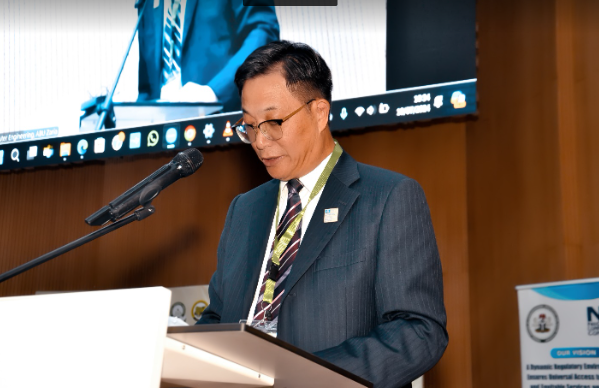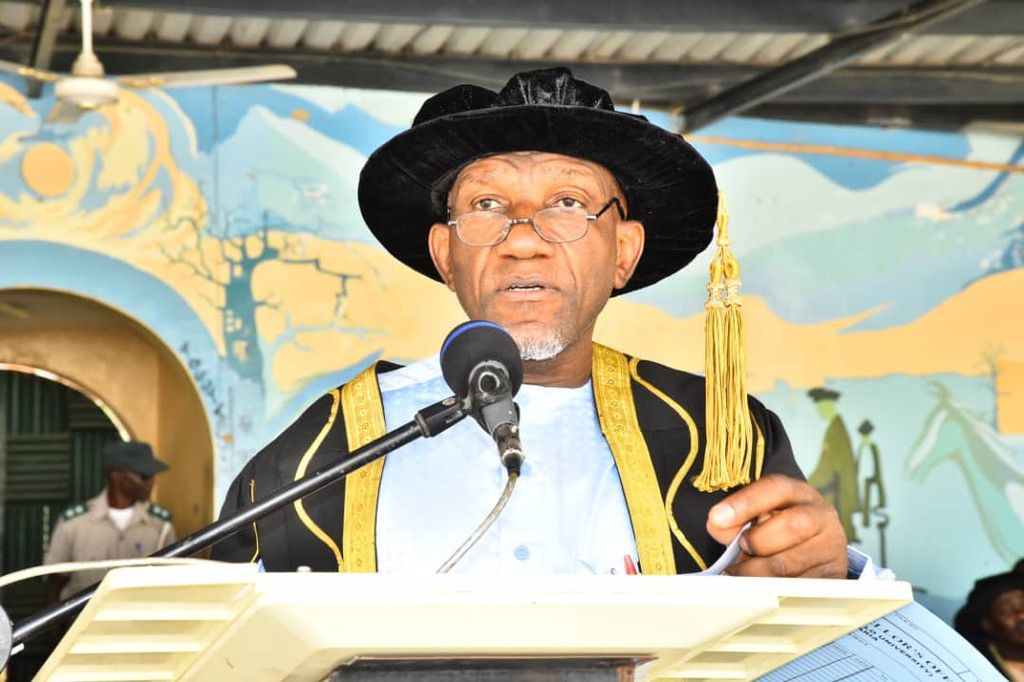Stakeholders call for policy on ethics as Nigeria seeks to become AI talent hub
)
As Nigeria plans to become the global hub for AI model training and talent development by 2030, stakeholders have called for the formulation of policies and guidelines for responsible, ethical, and safe use of Artificial Intelligence.
Aminu Maida, the Executive Vice Chairman and CEO of the Nigerian Communications Commission (NCC) said Nigeria’s AI strategy is aimed at creating over 50,000 jobs and leveraging technology to drive sustainable development and global competitiveness.
![New Executive Vice Chairman and Chief Executive Officer of NCC, Dr Aminu Maida [Premium Times Nigeria]](https://image.api.sportal365.com/process/smp-images-production/pulse.ng/26072024/34beb2ad-01ea-423f-a4b9-690b596ecb9c)
“Under the leadership of the Minister of Communications, Innovation, and Digital Economy, Nigeria is advancing a robust AI strategy aimed at positioning the country as a global hub for AI model training and talent development by 2030,” Maida said.
The NCC boss said this at the recent national dialogue organised by Ahmadu Bello University (ABU) Zaria, in conjunction with the International Institute of Online Education (IIOE), and UNESCO International Centre for Higher Education Innovation (UNESCO-ICHEI).
ABU is Nigeria's national centre for the International Institute of Online Education (IIOE)
![Dr Bosun Tijani, the Minister of Communications, Innovation and Digital Economy [Punch Newspaper]](https://image.api.sportal365.com/process/smp-images-production/pulse.ng/26092024/1ed64e1f-d84c-4f74-8ffe-725caf49390b)
The event aimed at integrating Artificial Intelligence in Nigerian higher institutions was predicated on the need to provide comprehensive guidelines for the use of AI and address issues such as data privacy, algorithmic fairness, and the digital divide.
Speaking at the forum, Bosun Tijani, the Minister of Communications, Innovation and Digital Economy, praised the organisers for their efforts in guiding the innovative use of AI in the common interests of the Nigerian educational system.
The minister said the popularity and advancement of AI are changing the education institutions’ approach to teaching and conducting research.
“The rapid advancement in Artificial Intelligence, particularly Generative AI, makes this a pivotal moment in our nation’s educational journey. AI is not just changing the telecommunication space or affecting the fundamentals of business; it is reshaping how we teach, learn, and conduct research,” Tijani said.
He added that the innovative spirit of Nigeria’s vibrant youth population uniquely positioned the country to harness the power of AI to transform its higher education landscape and drive sustainable development.

In his keynote speech, Kashifu Inuwa, the Director of the National Information Technology Development Agency (NITDA), said for Nigerian universities to produce a future workforce that is grounded in AI innovation, their curriculum must be updated to include AI and data science courses across disciplines.
According to him, NITDA envisions a future where Nigerian universities are not just consumers of AI technology but developers.

During his presentation, Maida tasked regulators to create guidelines and a conducive environment for the integration of AI in tertiary institutions.
He said the guidelines would “promote the use of open-source solutions and data practices, and ensure that AI technologies are accessible to all.”
He affirmed that the NCC is committed to supporting the initiative and working collaboratively with all stakeholders to ensure the success of AI integration in Nigerian higher education institutions.

In his speech, the Vice Chancellor of Ahmadu Bello University, Prof. Kabir Bala, said the advent and impact of generative AI are expected to continue to manifest in the quality of teaching, learning, and research activities within Nigeria's higher education ecosystem.
The VC of the institution which is the Nigeria National Centre of the International Institute of Online Education (IIOE) appreciated the NCC for its support for the forum.
While thanking the Federal Ministry of Education and other stakeholders, he urged the government to utilize the outcome of the dialogue in shaping future policy on how best to moderate the inevitable application of AI in the Nigerian higher education landscape.
)
![Aisha blows hot on Security forces; Y7ou won't believe what she said [VIDEO]](https://image.api.sportal365.com/process/smp-images-production/pulse.ng/17082024/1f976edf-1ee2-4644-8ba1-7b52359e1a8f?operations=autocrop(640:427))
)
)
)
![Lagos state Governor, Babajide Sanwo-Olu visited the Infectious Disease Hospital in Yaba where the Coronavirus index patient is being managed. [Twitter/@jidesanwoolu]](https://image.api.sportal365.com/process/smp-images-production/pulse.ng/16082024/377b73a6-190e-4c77-b687-ca4cb1ee7489?operations=autocrop(236:157))
)
)
)
)
)
)
)
)
)
)
)